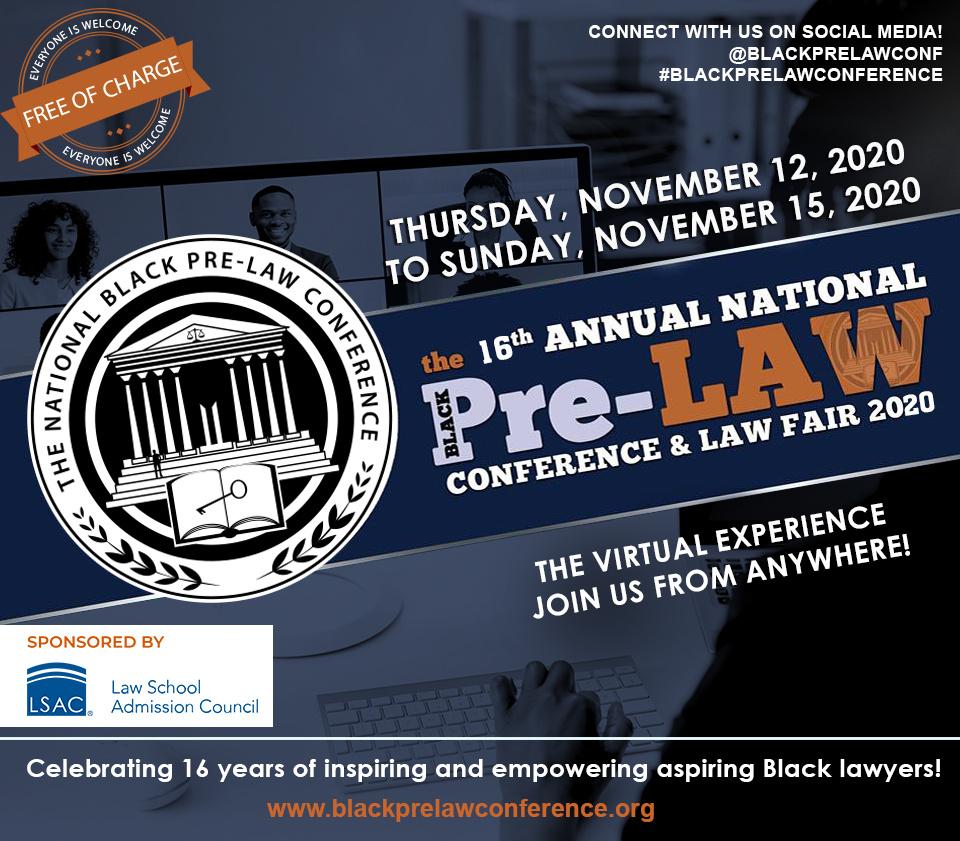
The legal profession is a very dynamic and diverse profession. There are many different practice areas and legal specialties that you can choose from – which may seem daunting. Determining an area of law that is right for you can happen as early as selecting your undergraduate major and can continue developing through undergraduate course selection, engaging in legal internships & law school classes, utilizing the career office in law school, and beyond.
Below is a collection of some common areas of legal practice to help you begin considering where your interests may lie!
Attorneys working in the public interest take on many roles and can practice many types of law. Ultimately, a public interest attorney serves the community’s interests by ensure access to legal representation for indigent individuals, advocating for policy reform, and commitment to achieving widespread legal and social change. Different types of law public interest lawyers can practice include, but are not limited to:
-
- AIDS / HIV, Animal Issues, Arts / Entertainment, Bankruptcy / Debt, Business / Economic Issues, Children / Youth, Civil Rights / Liberties, Communications, Consumer, Criminal, Death Penalty, Disability, Domestic Violence, Economic Development, Education, Elderly, Environment / Energy / Utilities, Family, Farm / Migrant Worker, First Amendment, Gay / Lesbian / Bisexual / Transgender Issues, Gun Control Issues, Government Accountability / Legal Reform / Whistleblowers, Health / Medical, Homelessness / Housing, Human Rights, Immigration / Refugee, Intellectual Property / Technology, Juvenile Defense, Labor / Employment, Municipal Law, Native American / Tribal Law, Personal Injury / Medical Malpractice / Products Liability, Prosecution, Poverty, Public Defenders, Legal Services, Prisoner Issues, Property / Real Estate, Racial / Ethnic Justice / Cultural Rights, Religious Issues, Reproductive Issues, Security / Defense / Arms Control, Tax, Trade, Transitional Justice / Democratic Process, Trusts and Estates, Voting / Campaign Finance, Women’s Issues.
Criminal law involves matters regarding a person charged with a crime. Public defenders or defense attorneys (representing the person charged of a crime) and prosecutors (representing the state/government) primarily practice criminal law. An attorney can practice criminal law at all levels: local, state, or federal. The majority of an attorney’s time is spent in court, with typically a heavier litigation case load than other attorneys. It is not uncommon for an attorney practicing criminal law to be in court most days of the week handling many different clients on various criminal charges (ranging from DUIs or minor drug offenses, to homicide and trafficking).
-
- Specialized Areas: White Collar Defense, Private Defense, and Department of Justice-Criminal Division.
IP attorneys work to protect a client’s inventions and creations and to enforce an inventor or creator’s rights regarding their intellectual property. IP law consists of patent law, trademark law, and copyright law.
-
- Patent law consists of patent prosecution and patent litigation. Prosecuting patents is no easy task—one must have taken the Patent Bar (administered by the United States Patent & Trademark Office) to become a patent agent to prosecute patents. Patent prosecutors work very closely with inventors to help the inventors get patent protection on their invention—meaning the government will grant the inventor a patent for a limited time so that the patent holder (the inventor) has the right to restrict other inventors from making their inventor, or infringing on their patent. Patent litigation is the practice of patent law when patents are issued. Patent litigators will work with clients to ensure that nobody is infringing on the inventor’s patent. It is typical litigation—pre-trial, trial, the courtroom, etc.; however, it is all within the discipline and subject matter of patent law.
- Trademark law is all about the branding and marketing of one’s mark (i.e., logo, brand, etc.). Trademark attorneys work closely with clients to ensure that their product is marketed in such a way that the consumer is able to connect that such good or service that is being promoted is associated with this certain mark (or logo). Think Nike and the famous “swoosh” mark. Nike works very hard to protect its trademark from infringers and dupes.
- Copyright law is the realm of intellectual property that is closely associated with the fine arts. Creators can get their ideas copyrighted when it is in a tangible medium. Examples of copyrightable material are: literary works, musical works, graphic works, sculptural works, motion pictures, audio-visual works, derivatives of protected works (sequels), original compilations of facts, code (computer science).
- Specialized Areas: Sports & Entertainment Law, Antitrust Law.
Corporate law comes in two forms: corporate litigation or corporate transactional law. Corporate litigation, like most litigation, is your standard litigation (adversarial, plaintiff/defendant, courtroom, pre-trial, trial, etc.) regarding corporations and corporate affairs. In both situations, corporate law attorneys are practicing with the corporation’s best interest in mind. The employees of the corporation are typically represented by other parties for the matter. Additionally, corporate attorneys can be tasked with advising the corporation on legal rights responsibilities, obligations, and best practices. Corporate transactional attorneys are not in court as much. Transactional attorneys focus their practice on deal work, preparing and reviewing contracts, and negotiating with groups to ensure the corporation’s affairs are done. Much of this practice can be high stakes, as it deals with corporations.
- Specialized Areas: Mergers & Acquisitions, Bankruptcy Law, Securities, Corporate Compliance, and In-House General Counsel.
Environmental law concerns laws and regulations at local, state, and federal levels that affect wildlife, land, water, air quality, and business practices in relation to the environment. Environmental attorneys can focus their practice in preservation, litigation, and advocacy and can work in the private sector, the public sector, or even for the government. However, environmental lawyers can also work for the other side—meaning environmental lawyers can work to defend corporations and various business practices that may offend best environmental practices.
-
- Specialized Areas: Energy Law, Oil & Gas, Regulatory Law, Administrative Law
Attorneys who practice in the area of Civil Rights and Civil Liberties are committed to ensuring the preservation of individual rights derived for the Constitution. Civil Rights attorneys will represent individual clients to preserve individual rights and advocate for changes to policy and laws that threaten individual rights. Civil Rights attorneys examine issues related to discrimination (based on race, gender, age, disability, sexuality), free speech, freedom of religion, due process, privacy, voting, incarceration, education and beyond. Civil Rights attorney may practice in a public or private setting – for non-profits, private firms or the government.
This area of law concerns the relationship between employers and employees and/or independent contractors. There is federal employment & labor law and regulations, as well as state-specific laws and regulations. Labor & Employment attorneys can work at all levels: local, state, or federal. Attorneys can work for the employer, spending most of their practice being proactive and advising the client employer on what to do to avoid legal trouble, plaintiffs, or the government.
-
- Specialized Areas: Employment Discrimination, Title VII, Worker’s Compensation, Labor Unions, Employee Benefits, Retaliatory Discharge, and Federal Employment Acts.
Personal Injury (PI) attorneys are among some of the most common tort lawyers representing individuals who have suffered a physical or psychological injury. Personal Injury law covers intentional or unintentional matters that have affected their client. Attorneys typically will represent the individual who has suffered a harm, but may also defend a client who has been accused of the harm (whether it is a person, business, or organization).
-
- Specialized Areas: Personal Injury, Mass Torts, Medical Malpractice, Product Liability, Wrongful Death, Insurance, and Worker’s Compensation.
Tax attorneys primarily focus on tax legislation and helping their clients maneuver the Tax Code. This is a specialized practice, requiring attorneys to have a good understanding of Tax Law and staying informed and up to date with frequent modifications to the local, state, and federal tax codes.
Attorneys handling trusts and estates focus on financial planning, creation of trusts, and managing (whether it be planning or seeing through) estates. It can involve setting up trusts and estates for the future, probate process, tax implications, or handling the matters as they arise—in connection to a client’s trust or a client’s estate—in the present.
This focuses on all matters property and real estate. Attorneys can focus on residential or commercial real estate, but ultimately can handle matters involving land, construction, development, acquisition of real estate, tenant rights, or landlord disputes.
Elder Law focuses on specialized issues that affect the aging population. Typically, this consists of an older clientele and the various and diverse matters presented with an elder client including health care, finances, guardianships, public benefits, and estates. An elder law practice may also examine issues of elder abuse or crimes against elderly populations.
This area of the law focuses in the context of the family and the various legal matters that may arise in this context. This can include child welfare, adoption, emancipation, child abuse, domestic partnerships, marriage, civil unions, parental rights and paternity, and divorce.
Immigration attorneys work with clients navigating the naturalization process. Additionally, attorneys work with clients facing threats to their naturalization process or potential deportation, individuals seeking asylum, or refugees. Immigrational Law attorneys may work in the private or public sector and may also focus on special intersection of immigration laws and other areas of practice such as family law or criminal law.
Health Law is a very diverse and dynamic practice. Healthcare laws are always evolving, so health care attorneys must be adaptable. Attorneys in this field may represent patients, clinics, hospitals, insurance companies, or individual health practitioners navigate health care legislation, rules, and regulations.
International Law is a broad category that includes many diverse, specialized areas of law. Inherently, international lawyers will practice in an area of law that intersects with the laws of another sovereign entity, international treaty, international organizations, or international policy.
-
- Specialized Areas: Criminal Law, Human Rights, Corporate/Business Law, Litigation, Economics, Foreign Service, International Governance and Organizations, Family Law, Environmental Law, Technology, Health Law, and Security/Armed Conflict.
For more information on different practice areas in the law, see
Still looking to explore what interests you? Take the quiz!








 Jason Emmanuel, Assistant State’s Attorney – Criminal Division Chief at the St. Clair County State’s Attorney’s Office
Jason Emmanuel, Assistant State’s Attorney – Criminal Division Chief at the St. Clair County State’s Attorney’s Office

